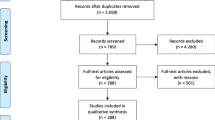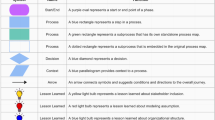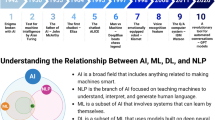Abstract
A number of Artificial Intelligence (AI) ethics frameworks have been published in the last 6 years in response to the growing concerns posed by the adoption of AI in different sectors, including healthcare. While there is a strong culture of medical ethics in healthcare applications, AI-based Healthcare Applications (AIHA) are challenging the existing ethics and regulatory frameworks. This scoping review explores how ethics frameworks have been implemented in AIHA, how these implementations have been evaluated and whether they have been successful. AI specific ethics frameworks in healthcare appear to have a limited adoption and they are mostly used in conjunction with other ethics frameworks. The operationalisation of ethics frameworks is a complex endeavour with challenges at different levels: ethics principles, design, technology, organisational, and regulatory. Strategies identified in this review are proactive, contextual, technological, checklist, organisational and/or evidence-based approaches. While interdisciplinary approaches show promises, how an ethics framework is implemented in an AI-based Healthcare Application is not widely reported, and there is a need for transparency for trustworthy AI.





Similar content being viewed by others
Availability of Data and Material
All data relevant to the study are included in the article of uploaded as supplementary information.
References
Abramoff, M. D., Tobey, D., & Char, D. S. (2020). Lessons learned about autonomous AI: Finding a safe, efficacious, and ethical path through the development process. American Journal of Ophthalmology, 214, 134–142.
Anderson, M., Anderson, S. L., & Berenz, V. (2019). A value-driven eldercare robot: Virtual and physical instantiations of a case supported principle-based behavior paradigm. Proceedings of the IEEE, 107(3), 526–540.
Battistuzzi, L., Papadopoulos, C., Papadopoulos, I., Koulouglioti, C., Sgorbissa, A., Maciejewski, A. A., et al. (2018). Embedding ethics in the design of culturally competent socially assistive robots. IEEE/RSJ International Conference on Intelligent Robots and Systems, 2018, 1996–2001.
Beauchamp, T. L., & Childress, J. F. (2013). Principles of biomedical ethics (7th ed.). Oxford University Press.
Beil, M., Proft, I., van Heerden, D., Sviri, S., & van Heerden, P. V. (2019). Ethical considerations about artificial intelligence for prognostication in intensive care. Intensive Care Medicine Experimental, 7(1), 70.
Bird, E., Fox-Skelly, J., Jenner, N., Larbey, R., Weitkamp, E., & Winfield, A. (2020). The ethics of artificial intelligence: Issues and initiatives. Panel for the Future of Science and Technology.
Buston, O., Strukelj, N., & Fenech, M. (2019). Explainability in Data-Driven Health and Care Technology. Future Advocacy.
Carter, S. M., Rogers, W., Win, K. T., Frazer, H., Richards, B., & Houssami, N. (2020). The ethical, legal and social implications of using artificial intelligence systems in breast cancer care. Breast, 49, 25–32.
Cawthorne, D., & Robbins-van Wynsberghe, A. (2019). From healthdrone to frugaldrone: Value-sensitive design of a blood sample transportation drone. 2019 IEEE International Symposium on Technology and Society.
Cawthorne, D., & Robbins-van Wynsberghe, A. (2020). An ethical framework for the design, development, implementation, and assessment of drones used in public healthcare. Science and Engineering Ethics.
Channa, R., Wolf, R., & Abramoff, M. D. (2020). Autonomous artificial intelligence in diabetic retinopathy: From algorithm to clinical application. Journal of Diabetes Science and Technology.
Commision, A. H. R. (2019). Human Rights and Technology: Discussion Paper. Australian Human Rights Commision.
Cooney, M. D., & Menezes, M. L. R. (2018). Design for an art therapy robot: An explorative review of the theoretical foundations for engaging in emotional and creative painting with a robot. Multimodal Technologies and Interaction, 2(3).
CPAIS. (2019). Human-AI collaboration framework & case studies. Collaborations between People and AI Systems (CPAIS). USA: Partnership on AI.
Crawford, K., Dobbe R., Dryer, T., Fried, G., Green, B., Kaziunas E., et al. (2019). AI Now 2019 Report. AI Now Institute.
Dantas, C., Balhau, P., Jegundo, A., Santos, L., Christophorou, C., Wings, C., et al. (2017). Verification methodology of ethical compliance for users, researchers and developers of personal care robots. In 5th World conference on information systems and technologies, WorldCIST (Vol. 570, pp. 754–762).
Floridi, L., & Cowls, J. (2019). A unified framework of five principles for AI in society. Harvard Data Science Review, 1.
Fukuzumi, S., Jinno, M., Inagaki, K., Maeda, H., Mizukami, T., Sakura, O., et al. (2019). Extraction of new guideline items from the view point of ELSI (Ethics, Legal, Social Issues) for service utilized AI–focus on healthcare area. In Thematic area on human interface and the management of information, HIMI 2019, held as part of the 21st International conference on human-computer interaction, HCI International 2019 (Vol, 11570, pp. 482–491).
Garner, T. A., Powell, W. A., & Carr, V. (2016). Virtual carers for the elderly: A case study review of ethical responsibilities. Digital Health, 2.
Hasenauer, R., Belviso, C., & Ehrenmueller, I. (2019). New efficiency: Introducing social assistive robots in social eldercare organizations. In 2nd Annual IEEE international symposium on innovation and entrepreneurship of the IEEE technology and engineering management society, TEMS-ISIE 2019.
Ienca, M., Kressig, R. W., Jotter, F., & Elger, B. (2017). Proactive ethical design for neuroengineering, assistive and rehabilitation technologies: The cybathlon lesson. Journal of Neuroengineering and Rehabilitation, 14.
Ienca, M., Wangmo, T., Jotter, F., Kressig, R. W., & Elger, B. (2018). Ethical design of intelligent assistive technologies for dementia: A descriptive review. Science and Engineering Ethics, 24(4), 1035–1055.
Jobin, A., Ienca, M., & Vayena, E. (2019). The global landscape of AI ethics guidelines. Nature Machine Intelligence, 1(9), 389–399.
Joerin, A., Rauws, M., Fulmer, R., & Black, V. (2020). Ethical artificial intelligence for digital health organizations. Cureus, 12(3), e7202.
Joshi, I., & Morley, J. (2019). Artificial Intelligence: How to get it right. Putting policy into practice for safe data-driven innovation in health and care. In I. Joshi, & J. Morley (Eds.). NHSX.
Klein, B., & Schlömer, I. (2018). A robotic shower system: Acceptance and ethical issues. Zeitschrift für Gerontologie und Geriatrie, 51(1), 25–31.
Kortner, T. (2016). Ethical challenges in the use of social service robots for elderly people. Zeitschrift Für Gerontologie und Geriatrie, 49(4), 303–307.
Kretzschmar, K., Tyroll, H., Pavarini, G., Manzini, A., Singh, I., & NeurOx Young People's Advisory, G. (2019). Can your phone be your therapist? Young people's ethical perspectives on the use of fully automated conversational agents (Chatbots) in mental health support. Biomedical Informatics Insights, 11, 1.17822E+17815.
McBride, N. (2020). Robot enhanced therapy for autistic children: An ethical analysis. IEEE Technology and Society Magazine, 39(1), 51–60.
McCradden, M. D., Joshi, S., Anderson, J. A., Mazwi, M., Goldenberg, A., & Zlotnik Shaul, R. (2020). Patient safety and quality improvement: Ethical principles for a regulatory approach to bias in healthcare machine learning. Journal of the American Medical Informatics Association : JAMIA.
Metzinger, T. (2019). Ethics washing made in Europe. Tagesspiegel, Retrieved 9, Sep, 2020 from https://www.tagesspiegel.de/politik/eu-guidelines-ethics-washing-made-in-europe/24195496.html
Milosevic, Z. (2019). Ethics in digital health: A deontic accountability framework. In 23rd IEEE international enterprise distributed object computing conference, EDOC 2019 (pp. 105–111).
Moher, D., Liberati, A., Tetzlaff, J., & Altman, D. G. (2009). Preferred reporting items for systematic reviews and meta-analyses: The PRISMA statement. PLoS Medicine, 6(7), e1000097.
Morch, C. M., Gupta, A., & Mishara, B. L. (2019). Canada protocol: An ethical checklist for the use of Artificial Intelligence in suicide prevention and mental health arXiv. arXiv.
Morley, J., Floridi, L., Kinsey, L., & Elhalal, A. (2020). From what to how: An initial review of publicly available AI ethics tools, methods and research to translate principles into practices. Science and Engineering Ethics, 26(4), 2141–2168.
NHS. (2019). The Topol review: Preparing the healthcare workforce to deliver the digital future.
Ouzzani, M., Hammady, H., Fedorowicz, Z., & Elmagarmid, A. (2016). Rayyan: A web and mobile app for systematic reviews. Systematic Reviews.
Peters, D., Vold, K., Robinson, D., & Calvo, R. A. (2020). Responsible AI-two frameworks for ethical design practice. IEEE Transactions on Technology and Society, 1(1), 34–47.
Peters, M. D. J., Godfrey, C. M., Khalil, H., McInerney, P., Parker, D., & Baldini Soares, C. (2015). Guidance for conducting systematic scoping reviews. JBI Evidence Implementation, 13(3), 141–146.
Poulsen, A., & Burmeister, O. (2019). Overcoming carer shortages with care robots: Dynamic value trade-offs in run-time. Australasian Journal of Information Systems, 23.
Poulsen, A., Burmeister, O. K., & Tien, D. (2018). A new design approach and framework for elderly care robots. In 29th Australasian conference on information systems, ACIS 2018.
Powles, J., & Hodson, H. (2017). Google DeepMind and healthcare in an age of algorithms. Health and Technology, 7(4), 351–367.
Rajkomar, A., Hardt, M., Howell, M. D., Corrado, G., & Chin, M. H. (2018). Ensuring fairness in machine learning to advance health equity. Annals of Internal Medicine, 169(12), 866–872.
Sendak, M., Elish, M. C., Gao, M., Futoma, J., Ratliff, W., Nichols, M., et al. (2020). “The human body is a black box”: Supporting clinical decision-making with deep learning. In 3rd ACM conference on fairness, accountability, and transparency, FAT* 2020 (pp. 99–109).
Sparrow, R., & Hatherley, J. (2019). The promise and perils of Al in medicine. International Journal of Chinese & Comparative Philosophy of Medicine, 17(2), 79–109.
Stahl, B. C., & Coeckelbergh, M. (2016). Ethics of healthcare robotics: Towards responsible research and innovation. Robotics and Autonomous Systems, 86, 152–161.
Topol, E. J. (2019). High-performance medicine: The convergence of human and artificial intelligence. Nature Medicine, 25(1), 44–56.
van Rysewyk, S. P., & Pontier, M. (2015). A hybrid bottom-up and top-down approach to machine medical ethics: Theory and data. Machine Medical Ethics, 74, 93–110.
Van Wynsberghe, A. (2016). Healthcare robots: Ethics, design and implementation. Healthcare Robots: Ethics, Design and Implementation, 1–152.
Villani, C. (2018). For a meaningful Artificial Intelligence: Towards a French and European strategy. Aiforhumanity.fr.
Acknowledgements
Ms Mary Simons contributed to the development of the search strategy and Professor Wendy Rogers and Associate Professor Farah Magrabi to its refinement. Dr Catalin Tufanaru provided guidance on the scoping review process and the selection of risk of bias tools for critical appraisal.
Funding
None.
Author information
Authors and Affiliations
Contributions
MG, EA, RC-W conceived the review, MG conducted the search. MG, EA, RC-W screened titles and abstracts and full texts. MG, EA, RC-W extracted data and undertook the critical appraisal. MG undertook the qualitative analysis. MG wrote the introduction and the discussion. EA, RC-W revised the first draft of the paper and the final draft. All authors approved the final version.
Corresponding author
Ethics declarations
Conflict of interest
The authors declare that they have no conflict of interest.
Additional information
Publisher's Note
Springer Nature remains neutral with regard to jurisdictional claims in published maps and institutional affiliations.
Appendices
Appendix 1: Grey literature search strategy
-
Scienceresearch.com limited to Food and Drug Administration using the following query: (artificial intelligence or machine learning or deep learning or robot* or chatbot* or intelligent assistive or decision support) AND (ethic* or privacy or fairness or equity).
-
Manual search of the websites of the following organisations:
Organisation name | Organisation type |
|---|---|
Accenture | Consultancy |
ACM | Professional organisation |
Amazon care | Technology company |
Apple | Technology company |
Bain & co | Consultancy |
Cap Gemini | Consulting |
CEPEJ (Council of Europe European Commission for the Efficiency of Justice) | Government |
CNIL | Government |
DeepMind | Technology company |
Department of industry innovation and science Australia | Government |
EP think tank | Government |
European Parliament | Government |
Future Advocacy | Consultancy |
GE healthcare partners | Consultancy |
Google research publication | Technology company |
Gov of the republic of Korea | Government |
IBM | Technology company |
ICO | Government |
IEEE | Professional organisation |
Intel | Technology company |
McKinsey | Consultancy |
Microsoft | Technology company |
Ministry of economic affairs and employment Finland | Government |
Mission Villani, AI for humanity | Government |
National Science and technology council (USA white house) | Government |
NHSX | Government |
NITI Indian Gov | Government |
Novartis foundation | Technology company |
OpenAI | Technology company |
Partnership on AI | Think tank |
Personal Data protection Commission Singapore | Government |
PWC UK | Consulting |
SAP | Technology company |
Tata Consultancy Services | Consultancy |
The Boston Consulting Group | Consultancy |
The Norwegian Data Protection Authority | Government |
Tieto | Technology company |
UK Government | Government |
UK Parliament | Government |
Verily (Google life sciences) | Technology company |
Appendix 2: Peer-reviewed literature search strategy
See Table 1.
Appendix 3: Quality assessment results
Appendix 4: Article characteristics
Rights and permissions
About this article
Cite this article
Goirand, M., Austin, E. & Clay-Williams, R. Implementing Ethics in Healthcare AI-Based Applications: A Scoping Review. Sci Eng Ethics 27, 61 (2021). https://doi.org/10.1007/s11948-021-00336-3
Received:
Accepted:
Published:
DOI: https://doi.org/10.1007/s11948-021-00336-3




